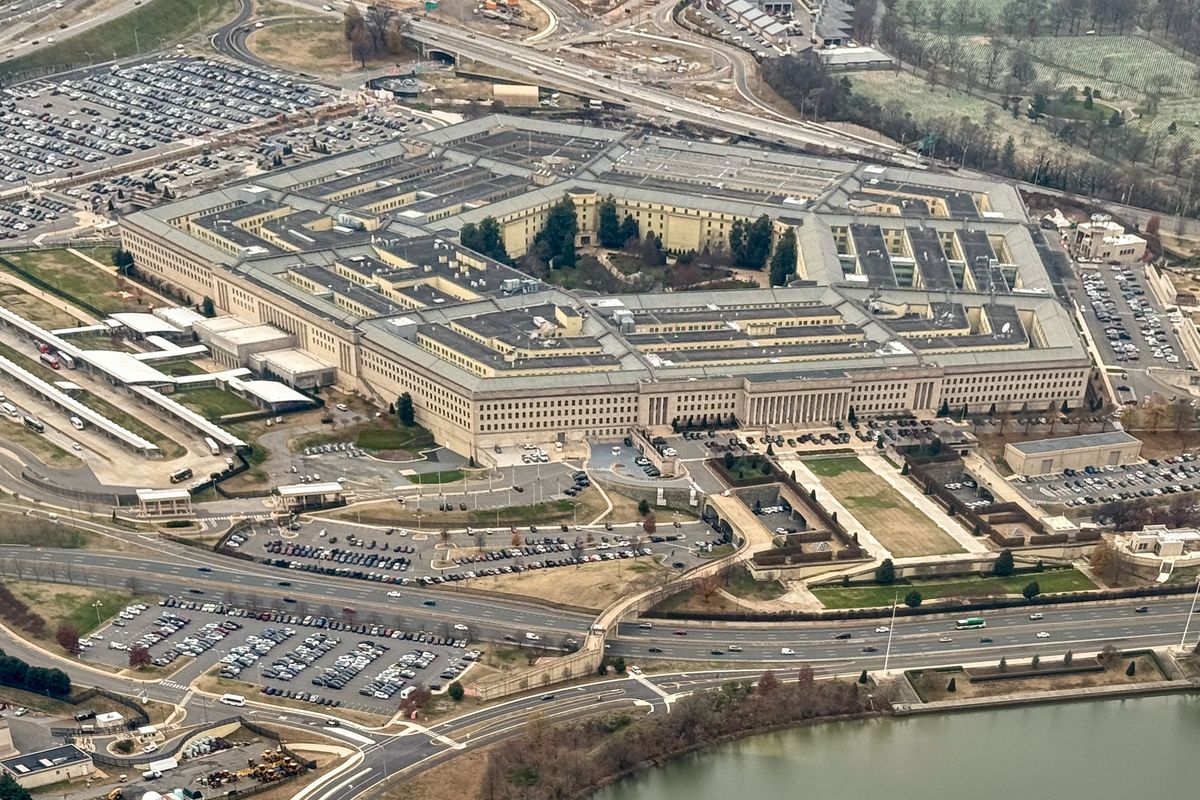The array of complex threats facing the United States requires the country to prioritize managing alliances and building coalitions, former Acting Director of the CIA John McLaughlin and retired General David Petraeus told members of Congress on Wednesday.
The two testified before the House Armed Services Committee at a hearing on “The State of the World: National Security Threats and Challenges,” laying out the key challenges facing the U.S. from ISIS, Russia, and China as well as from broader shifts in technology, energy, and growing discontent with governance worldwide.
Petraeus — the former director of the CIA, who resigned from the CIA after acknowledging an affair with his biographer and later pled guilty to mishandling classified information— said tackling the shifting relationships with powers such as Russia and China will each demand very different approaches. The challenge for the U.S. will be to “find the often elusive equilibrium” between diplomacy and balance of power, he said.
“Americans should not take the current international order for granted. It did not will itself into existence. We created it. Likewise, it is not naturally self-sustaining. We have sustained it. If we stop doing so, it will fray and, eventually, collapse,” Petraeus, who President Donald Trump had considered for the position of Secretary of State, told members. “This is precisely what some of our adversaries seek to encourage.”
Russian President Vladimir Putin, he noted, is “tenaciously working” to sow doubt about democratic institutions and the West’s approach to governing.
“Putin, for instance, understands that while conventional aggression may occasionally enable Russia to grab a bit of land on its periphery, the real center of gravity is the political will of the major democratic powers to defend Euro-Atlantic institutions like NATO and the EU," he said.
Trump has repeatedly praised Putin and made several statements during the election supporting Kremlin policy. He said the U.S. would only defend NATO countries, which may feel threatened by Russia, if they had “fulfilled their obligations to us.” He also indicated he would “be looking at” recognizing Crimea as a part of Russia and lifting sanctions imposed after the 2014 annexation and Russian support of rebels in eastern Ukraine.
It is important that the U.S. be “very clear that we will not put up with aggression against NATO,” McLaughlin told members. He also suggested that “maybe our greatest way to combat Russia is to help Ukraine,” noting that the country has made some positive changes in recent years to “becoming a smart political nation.”
On ISIS, Petraeus pointed out that even if the U.S. and its partners see likely military success, it will “be fleeting” unless the underlying conflicts are resolved and the overall ideology is discredited. “Contending with the ideological caliphate in cyberspace may prove more challenging” than taking away ISIS’ physical territory, Petraeus warned the members.
During his testimony, McLaughlin, who is a member of The Cipher Brief network, laid out what he called three “urgent” threats to the U.S. and its close allies: terrorism, nuclear weapons, and cyber.
With terrorism, ISIS is still a “very serious threat” but it has less territory, money, and a slowing recruitment pipeline and less attractive narrative. But the challenge there will stem from the foreign fighters it has gathered, as “its jihadists can filter back into Western societies and neighboring societies,” McLaughlin noted. And there’s not just ISIS to worry about — al Qaeda, he said, “is not out of business.”
North Korea presents the most urgent threat on the nuclear front, according to McLaughlin. “The odds are high they they will get to a nuclear ICBM capability during this administration and possibly even during the current Congress,” he told members.
And on cyber threats, McLaughlin said the recent examples of Russian hacking of U.S. political organizations and Chinese hacking of OPM show much more is needed in this area, with international agreements established on what norms govern this domain.
Beyond the urgent threats, McLaughlin said the Middle East and the Syria conflict, destabilizing trends in Europe, China, and Russia will continue to be “ongoing and vitally important.” He also characterized two areas as “emerging or evolving threats” — the Iran nuclear deal and the ongoing revolution in the international energy market, where the shifts could significantly stress societies overly dependent on oil revenue.
All the problems the U.S. is dealing with cannot be solved by this country alone, McLaughlin said. They “require us to be in partnership with someone else,” he told members.
The two also weighed the potential impacts of Trump’s executive order indefinitely blocking all refugees from Syria, suspending the entire broader refugee admissions program for 120 days, and stopping citizens from “countries of particular concern” — Iran, Iraq, Libya, Somalia, Sudan, Syria, and Yemen — from entering the United States for 90 days.
"The sooner that we can figure out what additional steps need to be added to the process to ensure we double and triple check to ensure civilians coming to our country” will not do harm is important, Petraeus said. One issue he pointed out stemming from the order is that, for instance, the commander of Iraq’s counterterrorism forces cannot meet in person with officers from U.S. Central Command.
McLaughlin, meanwhile, reiterated his comments earlier this week to The Cipher Brief that the EO shows this administration has yet to learn that its actions have “secondary and tertiary consequences.” And, he noted, “almost everything we do gives the Islamic extremists ammunition. … and they will do that with this.”
Mackenzie Weinger is a national security reporter at The Cipher Brief. Follow her on Twitter @mweinger.












